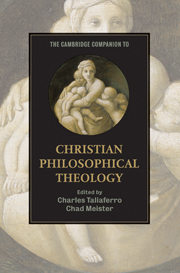9 - Atonement
from Part II - God in relation to creation
Published online by Cambridge University Press: 28 May 2010
Summary
The word atonement is unusual in being a term with English origins that has entered the standard vocabulary of Christian theology. Broken into its component parts - at-one-ment - it naturally suggests a state of affairs in which two parties are united or reconciled, but in both its theological and nontheological uses, it more usually refers to the act or process by which this has come about. Just as we speak of atoning for our mistakes and wrongdoings, the traditional Christian belief in the Atonement refers primarily to the spiritual significance of the life and work of Jesus Christ. It is a central affirmation of Christianity that Christ atoned for the sins of the world and thus reconciled a fallen humanity to God. Though this affirmation is not expressly included in any of the three principal creeds - Apostles', Athanasian, and Nicene - few Christians, if any, would dispute it. Intellectual problems and theological disagreements only arise when we attempt to expand on this simple affirmation. Just what was our condition before Christ's work of reconciliation? Was it estrangement in the way members of a family become estranged when the natural affection and sympathy they ought to have for each have dried up, or been hurtfully transferred to nonfamily members?
- Type
- Chapter
- Information
- The Cambridge Companion to Christian Philosophical Theology , pp. 124 - 135Publisher: Cambridge University PressPrint publication year: 2009
- 1
- Cited by

